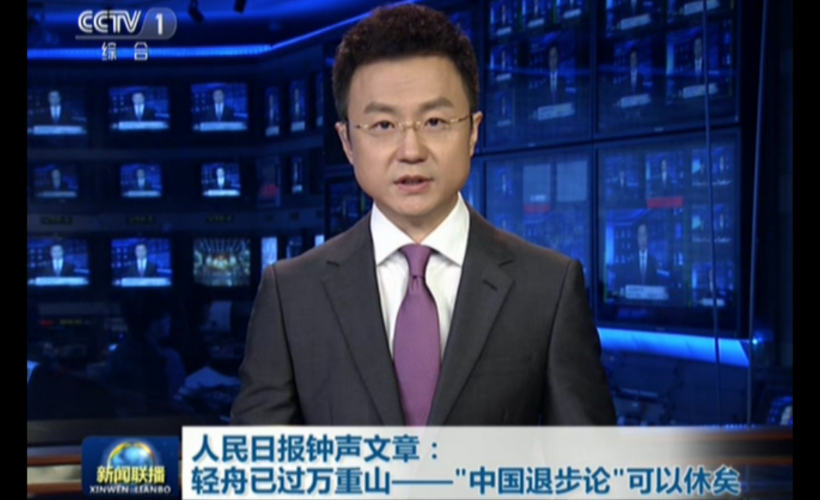People’s Daily attacks ‘arrogant’ America, dials up rhetoric

This Chinese-language opinion piece appeared on page three, the main opinion page, of the May 22 edition of the People’s Daily. The author is Zhōng Shēng 钟声, a pseudonym that is a homophone for “voice of China” and is used for important commentary on international affairs. Xinhua New Agency prominently republished the opinion piece, and a CCTV news anchor read extensive excerpts from the piece on the state broadcaster’s main evening news program.
This opinion piece is significant because it suggests that there is no appetite on the Chinese side for any concessions. On the contrary, Beijing has totally abandoned its former, calm rhetorical response to American accusations and legal moves. As historian and wry observer of current affairs ran Zhāng Lìfán 章立凡 tweeted: “It’s the time to use nationalism to let everyone unite around the core leader when the trade talks are in crisis.” This is how the People’s Daily piece begins (in our translation):
China-U.S. economic and trade negotiations have not yet reached any agreement. The U.S. has repeatedly slandered the Chinese side, accusing the Chinese of “reneging” and “backtracking,” all the while itself actually reneging on some issues where the two sides had already reached consensus. The U.S. side used such tricks, misleading the public with deliberate falsehoods, while at the same time brandishing a big stick. In essence, this was just another performance of bullying.
The word used for “bullying” is 霸凌主义 bàlíng zhǔyì. Bàlíng is a loan word from the English “bullying,” with zhǔyì added to the end to mean something like “bullyism.” The piece accuses the U.S. of arrogance and fickleness, and says Washington blames other countries for America’s own problems.
“China has principles and a bottom line,” begins another key passage:
At any time and under all circumstances, China will resolutely defend the core interests of the country and the fundamental interests of the people, and resolutely safeguard the dignity of the country and the nation. To call the Chinese insistence on their principles “reneging” and “backtracking,” is the logic of bandits.
The piece ends with a quotation from a much-loved Tang dynasty poem by Lǐ Bái 李白: “Apes are shouting on both banks of the river, but my little boat has already passed ten thousand mountains,” which suggests that while the monkey-like Americans are raising a hue and cry, China is calmly sailing on to a bright future.
For more on the relative authority of articles in the People’s Daily and other state media, see Who speaks for the Chinese government? by Graham Webster on The China Project.






